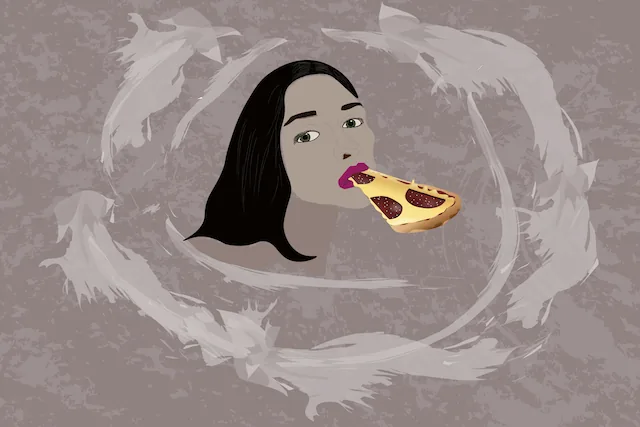Living with ADHD often feels like fighting an invisible battle against your own brain. The constant struggle to focus, remember, and follow through can leave you feeling frustrated and defeated. But what if the solution wasn’t about fighting harder, but about approaching yourself differently? This is where mindfulness self-compassion as a foundational practice creates real transformation for ADHD management.
Why Mindfulness and Self-Compassion Matter for ADHD
ADHD isn’t just about attention difficulties—it’s an emotional regulation challenge that amplifies our inner critic. When you repeatedly struggle with tasks that seem easy for others, that negative voice grows louder: “You’re such an idiot! You’ll never be good at anything!” This emotional spiral makes it harder to stay motivated and take positive action. Mindfulness self-compassion as an approach helps break this cycle by changing how you relate to your struggles.
Research shows that combining mindfulness with self-compassion creates a powerful foundation for ADHD care. Mindfulness helps you notice when you’re being self-critical, while self-compassion allows you to respond with kindness instead of judgment. This dual approach provides the stable emotional ground needed to navigate ADHD challenges effectively.
The Friend Test: A Self-Compassion Exercise
Imagine your best friend just failed a major test because their ADHD caused them to forget it existed. They come to you feeling devastated. What would you say? Most people respond with empathy: “I’m so sorry! That’s really tough. Let’s figure out how to prevent this next time.”
Now imagine the same situation happened to you. What would your inner monologue sound like? For many with ADHD, it’s harshly critical: “I screwed up AGAIN! Why can’t I remember anything? I’m such a failure!”
This gap between how we treat friends versus ourselves reveals why mindfulness self-compassion as a practice is so transformative. The exercise highlights that we often extend kindness to others that we deny ourselves.
“Self-compassion is our main engine for change. Switching to that power source requires no special equipment—all you need is yourself.” — Sharon Salzberg, mindfulness teacher
Practical Steps to Develop Self-Compassion
Notice Your Self-Talk: When you make a mistake or struggle with ADHD symptoms, pause and observe your internal dialogue. Are you speaking to yourself like a supportive friend or a harsh critic?
Apply the Friend Standard: Ask yourself, “What would I say to my best friend in this situation?” Then consciously direct those same compassionate words toward yourself.
Acknowledge the Difficulty: Recognize that ADHD makes certain tasks genuinely challenging. Instead of blaming yourself, acknowledge the real obstacles you face.
Practice Mindful Acceptance: When self-critical thoughts arise, notice them without judgment. Remind yourself that struggling doesn’t mean failing—it means you’re human.
Building Your Mindfulness Self-Compassion Foundation
Developing mindfulness self-compassion as a daily practice requires consistency, not perfection. Start small by setting aside five minutes each day to check in with yourself. Notice your emotional state without trying to change it. When you catch yourself in self-criticism, gently redirect with kinder language.
This approach creates neurological changes over time. Regular practice strengthens neural pathways associated with emotional regulation and reduces activity in the brain’s threat detection system. Essentially, you’re retraining your brain to respond to challenges with support rather than self-attack.
- Reduces emotional overwhelm by creating space between triggers and reactions
- Improves task persistence by replacing shame with constructive support
- Enhances problem-solving by moving from self-criticism to practical solutions
- Builds emotional resilience through consistent self-support
Transforming Your Relationship with ADHD
Mindfulness self-compassion as a foundation changes your entire experience of ADHD. Instead of viewing symptoms as personal failures, you begin to see them as challenges to navigate with kindness and practical support. This shift is profound because it addresses the secondary symptoms of ADHD—the shame, anxiety, and self-doubt that often cause more suffering than the primary symptoms themselves.
When 17-year-old Jennifer shared her experience, she captured this transformation perfectly: “Everything does keep getting better, now that I’m not so hard on myself.” This isn’t about lowering standards—it’s about changing the fuel that drives your efforts from self-criticism to self-support.
Your Action Plan for Lasting Change
Begin implementing mindfulness self-compassion as your new approach to ADHD management today:
- Start each morning with one minute of mindful breathing and setting a compassionate intention
- Use the friend test whenever you notice self-criticism arising
- End each day by acknowledging three things you handled well, no matter how small
- Practice regularly—even two minutes of mindful self-compassion daily creates cumulative benefits
Conclusion: A Kinder Path Forward
Mindfulness and self-compassion provide the stable foundation needed to navigate ADHD challenges with greater ease and effectiveness. By recognizing when you’re struggling and responding with the same kindness you’d offer a friend, you create an internal environment where growth becomes possible. This approach isn’t about eliminating ADHD symptoms, but about changing how you relate to them.
Remember that developing mindfulness self-compassion as a consistent practice is a journey, not a destination. Each moment you choose kindness over criticism, you strengthen this foundation. Start today by simply noticing your self-talk and asking, “Would I say this to someone I love?” Your answer might just transform your relationship with ADHD—and yourself.
Adapted from Mindfulness and Self Compassion for Teen ADHD, by Mark Bertin and Karen Bluth, published 2021










